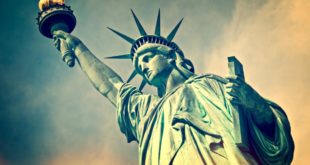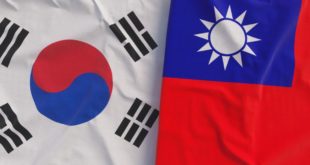Even after two years of "transitory" inflation, America's ruling classes insist that prices are falling and that all of this is temporary. We don't believe them. Original Article: "The Ruling Classes Are Inflation Deniers and the Ship of Fools Sails On" [embedded content] Tags: Featured,newsletter
Read More »The New Immigration Bill Is a Trojan Horse for E-Verify and Is a Threat to All Americans
Members of the U.S. House of Representatives are set to vote this week on new legislation that would greatly increase the federal government's power over private businesses, workers, and US citizens. Unfortunately, much of the GOP majority is supportive of the legislation—the “Border Security and Enforcement Act of 2023” (HR 2640)—because it is being marketed as a bill "to secure the border." Much of the bill contains reasonable provisions such allowing state...
Read More »Did Tucker’s Last Major Guest Lead to His Firing?
Speculation is still swirling about why Tucker Carlson was cancelled by Fox News. The major mainstream outlets have credited his dismissal to a few leaked text messages and video footage revealing Carlson making “crude and offensive” comments off air. Some outlets pointed to the lawsuit brought against Fox and Carlson by Abby Grossberg. Still others claim that the Dominion Voting defamation suit was the impetus for the ouster. I have given a different explanation....
Read More »Comprehensive Reform versus Piecemeal Reform
In the previous two articles in this three-part series on bipartisan comprehensive political reform, we dealt with the excuses for extortion and evasion such claims for reform provide and with the fact that such claims often lead to more comprehensive ignorance being applied to social problems. Now, we turn to the question of comprehensive reform versus piecemeal reform. When it comes to bipartisan comprehensive political reform, beyond its rhetorical use to enable...
Read More »The Fed Is Overindebted, Isn’t It?
Behind closed doors, the report is already making the rounds in expert circles: if you follow the rules of sound commercial accounting, the United States Federal Reserve (Fed) has lost its equity and is, as common language would have it, bankrupt. What happened? During spring 2020 (i.e., in a period of extremely low interest rates), the Fed purchased large amounts of government bonds and mortgage bonds to support the economy and financial markets during the covid...
Read More »The Income Tax: Lessons from the Sixteenth Amendment
The passage of an income tax in the early twentieth century was an enormous shift toward a far more centralized and powerful US state. Original Article: "The Income Tax: Lessons from the Sixteenth Amendment" [embedded content] Tags: Featured,newsletter
Read More »Prevent Future Losses Like East Palestine by Reducing Regulation and Empowering Torts
To prevent rail accidents like the one in East Palestine, dial back government regulation and allow the tort system to work. Original Article: "Prevent Future Losses Like East Palestine by Reducing Regulation and Empowering Torts" [embedded content] Tags: Featured,newsletter
Read More »Was Japanese Colonialism the Engine of Later Prosperity for Korea and Taiwan? Probably Not
Mainstream historians attribute the postwar economic success of South Korea and Taiwan to the legacy of Japanese colonialism. The Japanese are credited with providing new technologies, critical infrastructure, and an efficient state that enabled industrial progress in South Korea and Taiwan. Both Taiwan and Korea benefitted from the successful adoption of Japanese technologies and recorded industrial growth under imperial rule. Moreover, during 1913–38, Taiwan and...
Read More »Disinformation and the State: The Aptly Named RESTRICT Act
Federal laws with acronyms are usually bad news. (Think the USA PATRIOT Act.) The RESTRICT Act is yet another Orwellian proposal in which the federal government assumes ignorance is strength. Original Article: "Disinformation and the State: The Aptly Named RESTRICT Act" [embedded content] Tags: Featured,newsletter
Read More »Lincoln’s Main Target Was “Anarchy” and Secession, Not Slavery
Once the Southern states accepted the Thirteenth Amendment, Lincoln was entirely content for the old Southern elites to resume their positions of power and for many blacks to continue in a condition little better than bondage. Original Article: "Lincoln's Main Target Was "Anarchy" and Secession, Not Slavery" [embedded content]...
Read More » Swiss Economicblogs.org
Swiss Economicblogs.org





